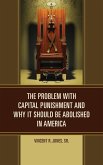Originally published in 1945. This book presents the developing opinions contemporary to the post-war period, of the social and psychological roots of criminal actions as seen through the viewpoint of a practising magistrate. Looking at the psychological treatment of delinquents in particular, using actual case experiences, various causes are illustrated, and future preventative interventions are suggested and categorised. Early childhood developmental effects leading to characteristic criminality are distinguished from those societal factors with later and lesser influence, in the opinion of the author. The book discusses the court systems for judging family disputes and divorce in comparison to criminal cases amongst its investigation into the cause of criminality. The author's ground-breaking work led to much reform in the UK judicial system and this book is a fascinating insight to the history of psychology, law and criminology.
Hinweis: Dieser Artikel kann nur an eine deutsche Lieferadresse ausgeliefert werden.
Hinweis: Dieser Artikel kann nur an eine deutsche Lieferadresse ausgeliefert werden.









